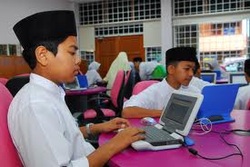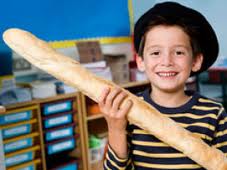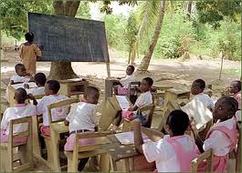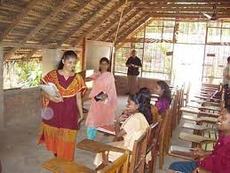Global, Collaborative Classrooms Project
Overview
This project is necessarily flexible to accommodate various time constraints as well as to allow for the ultimate in creativity and for following personal interests. We have posted some suggested ideas for possible Student Project Possibilities. See the Curriculum Center for guidelines for Designing Your Project. We will be posting various project planning forms and rubrics shortly. Peruse the following pages to start getting some ideas on how you would like to participate:
Issues and Themes related to Food and Culture will be the organizers for various curriculum strands in this global project. Classes may limit themselves to one strand or participate in all of them. Personally, if it was my classroom, I would divide my class into Expert Groups, one for each strand, then let them Jigsaw throughout the year and teach each other. Within each strand we will develop levels - early elementary, upper elementary and high school at first - then later define more specific levels such as PreK-K, 1st through 3rd grade, and so on.
Eventually every strand will be developed using a Curriculum Matrix which will include essential components, content standards and skills, varying according to grade level. And we are also developing a Rubric for Project Teams.
The curriculum being developed for this global, collaborative classrooms project will provide students with an avenue for developing a global perspective by working with students, teachers and experts from all over the world. The Millennium Development Goals of the United Nations, a number of Issues identified by the United States White House, 21st Century Survival Skills as outlined by Tony Wagner and Global Competencies will be addressed as students explore the problems and possible solutions to global issues related to technology, health, poverty, resources, and climate change; they will explore issues related to the availability of adequate food and clean water, issues related to obesity, and the evolution of the nutrition transition. They will investigate the role of governments and corporations, marketing, agricultural practices, environmental studies, and pollution. Students will analyze the evolution of food and culture from ancient times and its relationship to the Industrial Revolution, then globalization and the 21st century.
See this Global Competence Matrix outlining the knowledge, skills, and dispositions to understand and act creatively and innovatively on issues of global significance. The four categories include Investigate the World, Recognize Perspectives, Communicate Ideas and Take Action.
See Designing Your Project for details on how to proceed.
This project is necessarily flexible to accommodate various time constraints as well as to allow for the ultimate in creativity and for following personal interests. We have posted some suggested ideas for possible Student Project Possibilities. See the Curriculum Center for guidelines for Designing Your Project. We will be posting various project planning forms and rubrics shortly. Peruse the following pages to start getting some ideas on how you would like to participate:
Issues and Themes related to Food and Culture will be the organizers for various curriculum strands in this global project. Classes may limit themselves to one strand or participate in all of them. Personally, if it was my classroom, I would divide my class into Expert Groups, one for each strand, then let them Jigsaw throughout the year and teach each other. Within each strand we will develop levels - early elementary, upper elementary and high school at first - then later define more specific levels such as PreK-K, 1st through 3rd grade, and so on.
Eventually every strand will be developed using a Curriculum Matrix which will include essential components, content standards and skills, varying according to grade level. And we are also developing a Rubric for Project Teams.
The curriculum being developed for this global, collaborative classrooms project will provide students with an avenue for developing a global perspective by working with students, teachers and experts from all over the world. The Millennium Development Goals of the United Nations, a number of Issues identified by the United States White House, 21st Century Survival Skills as outlined by Tony Wagner and Global Competencies will be addressed as students explore the problems and possible solutions to global issues related to technology, health, poverty, resources, and climate change; they will explore issues related to the availability of adequate food and clean water, issues related to obesity, and the evolution of the nutrition transition. They will investigate the role of governments and corporations, marketing, agricultural practices, environmental studies, and pollution. Students will analyze the evolution of food and culture from ancient times and its relationship to the Industrial Revolution, then globalization and the 21st century.
See this Global Competence Matrix outlining the knowledge, skills, and dispositions to understand and act creatively and innovatively on issues of global significance. The four categories include Investigate the World, Recognize Perspectives, Communicate Ideas and Take Action.
See Designing Your Project for details on how to proceed.




